- やさしい日本語
- ひらがなをつける
- Language
We provide multilingual content through machine translation. Translation accuracy is not 100%. About the multilingualization of the JAC website
- About JAC
- JAC Membership Information
- Specified Skilled Worker Acceptance
- Specified Skilled Worker Overview of the system
- 10 Mandatory Assistance for Foreigners
- Online individual consultation
- Seminar on Coexistence with Foreign Nationals
- Leading examples of host companies
- Case studies collection "Visionista"
- Foreigner's Voice
- Foreign Resident Acceptance Manual / Q&A
- Useful column "JAC Magazine"
- Acceptance support services
- Specified Skills Acceptance Support Service
- Skills improvement support
- Online Special Education
- Skill training
- Japanese Language Course
- Education and Training Support
- Subsidy system for obtaining qualifications
- Support for creating a comfortable workplace
- Temporary Return Support
- CCUS charge support
- Support system for promoting the accumulation of employment history
- Post-acceptance training
- Compensation system for Specified Skilled Worker (i)
- Daily life support
- Medical interpretation support
- Support for daily life problems
- freeJob matching
- The Specified Skills Evaluation Exam
- Home
- Foreigner Coexistence Seminar "Get to Know Nepal!" January 18th News
Reports
2024/01/29
Foreigner Coexistence Seminar "Get to Know Nepal!" January 18th News
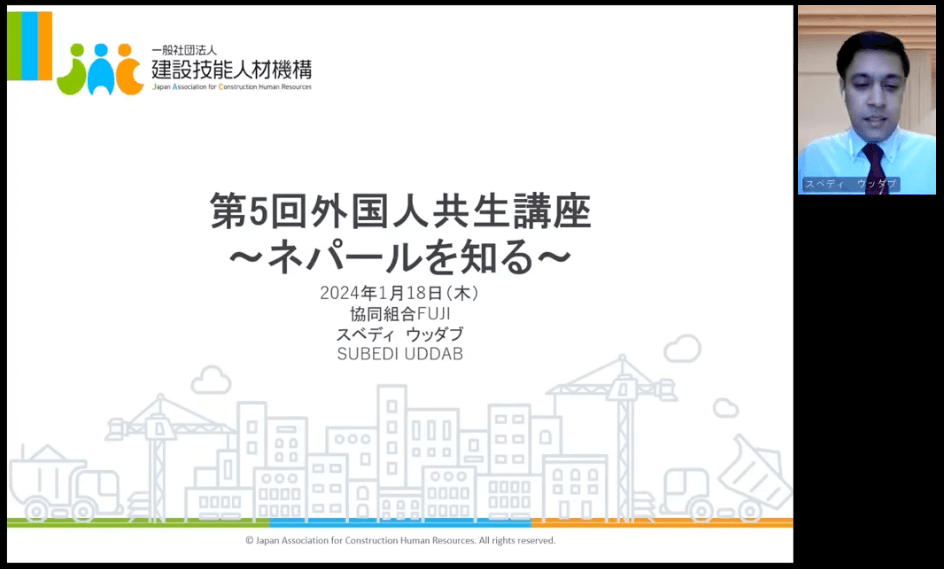
Attention is being focused on accepting Nepalese people who are well adapted to the Japanese climate
This year, as part of our project to contribute to the creation of a comfortable workplace for Specified Skilled Worker, such as support for facilitating communication in the field and in daily life, we are holding the "Symbiosis Course for Foreigners for Japan" free of charge six times a year.
The 5th "Get to Know Nepal!" was held online on Thursday, January 18th. This seminar invited Mr. Subedi Uddhav (Cooperative FUJI), who came to Japan 10 years ago and is currently engaged in supervision and support for foreign Technical Intern Training students at the Supervising Association, as a lecturer, and from the basics of Nepal such as Nepalese religion, history, food culture, and events. He talked about a wide range of content, including the characteristics of Nepalese communication and Nepali that is useful to know.
In particular, I was surprised to learn that it is common for Nepalese families to have four members, including parents and two children, one of whom often works overseas. I also learned that in Nepal, families do not have two days off per week, but only have Saturdays off, which made me realize once again that working styles differ from country to country.
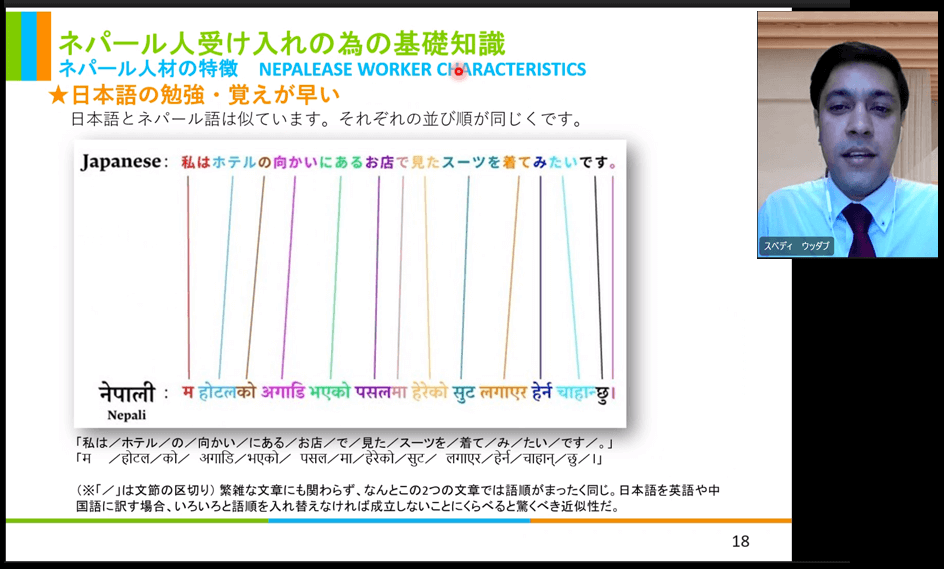
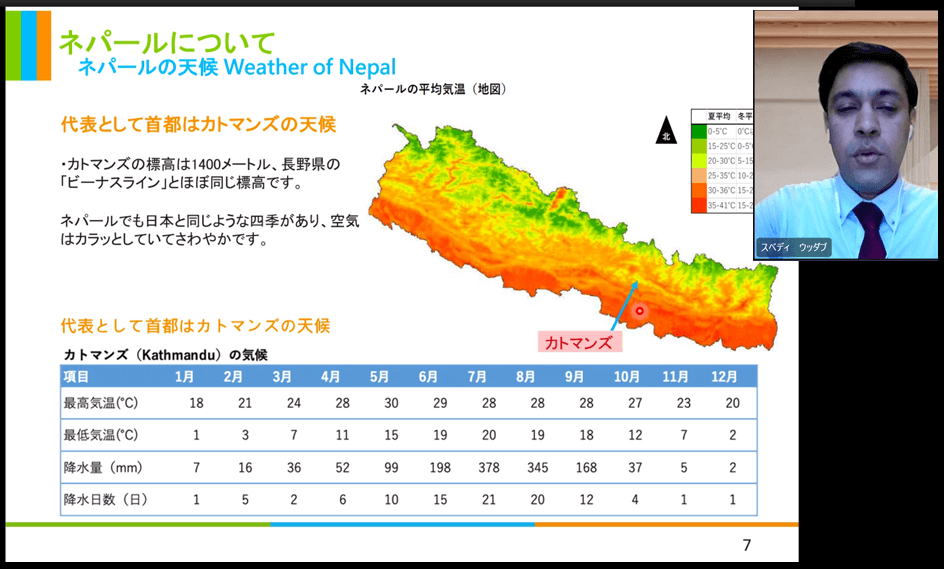
Main Q&A
- Q. From the perspective of Nepal/Nepalese people, what is your image of Japan?
- The image is that Japanese people are kind and that women receive the same salary as men.
- Q. Please tell me about the holidays during Dashain (Nepal's biggest festival).
- Nepalese people want to take time off, usually for 1-2 days.
- Q.What kind of jobs do you think are suitable for Nepalese people?
- While each person is suited to different jobs, Nepalese people are particularly good at learning and have a strong spirit of cooperation. As such, I feel that jobs that require cooperation and teamwork while learning are preferable for Nepalese people.
- Q.Do I need to join MWWF* at the time of departure from Nepal in either Gijinkoku, Specified Skills, or Technical Intern Training?
*Overseas Labor Insurance and Migrant Worker's Welfare Fund [Nepalese Procedures] - Technical Intern Training When leaving Nepal in Specified Skills, MWWF procedures are mandatory.
In the case of Gijinkoku, there are two patterns.
It is mandatory if you want to hire Gijinkoku directly from Nepal.
It is not necessary if you are already living abroad for study abroad and can present something that you recognize as a resident after returning to Nepal and before leaving the country.
*In the case of Japan, it is a residence card.
And more.
Participant feedback (from the survey)
- I didn't know much about Nepal before, so I was able to get an overview. It was also good that the lecturer was from Nepal.
- The instructor explained things clearly and carefully, which gave me hope for Nepalese talent.
- I would appreciate it if you could also give me some terminology that I can use in the workplace.
- I would have liked to see more concrete examples of work-related topics, such as problems, how to approach work, and how to think about money.
- They are having trouble getting foreigners who want to earn money to understand that the workplace is making efforts to reduce overtime.
- I would like to know about the trends of accepting companies, Immigration Control and Refugee Recognition Act revisions, etc.
And so on.
If you weren't able to attend, be sure to check out the following:
Click here to watch what you missed
https://youtu.be/_ZR5jfAY2Eo?si=W__IjtZo72gHH8TX(Please note that due to privacy concerns, the Q&A Corner has been excluded.)
★Click here for the slides used
https://jac-skill.or.jp/news/files/document_20240118.pdfNext month, on February 15th (the final session), we will be talking about Thailand. We hope that a wide range of people will participate, including companies that currently employ or are considering employing Thai people, and people who work with Thai people in the field, and that this will provide some hints for working with foreigners.
* skills evaluation exam in Thailand will be conducted from December 2023.
★For more information on the lectures on coexistence with foreigners, click here
https://jac-skill.or.jp/news/event/20230620.php★For details on the 6th Foreigner Coexistence Seminar "Get to Know Thailand!", click here
https://jac-skill.or.jp/news/event/know-thailand.php★Click here to apply for the Thai Coexistence Course
https://events.teams.microsoft.com/event/dc31addf-6079-4593-bfca-1ac604c652b8@1afda869-1f95-44ee-9a1d-688120f4fc18*Multicultural coexistence means "people of different nationalities, ethnicities, etc. living together while recognizing each other's cultural differences and striving to build equal relationships."
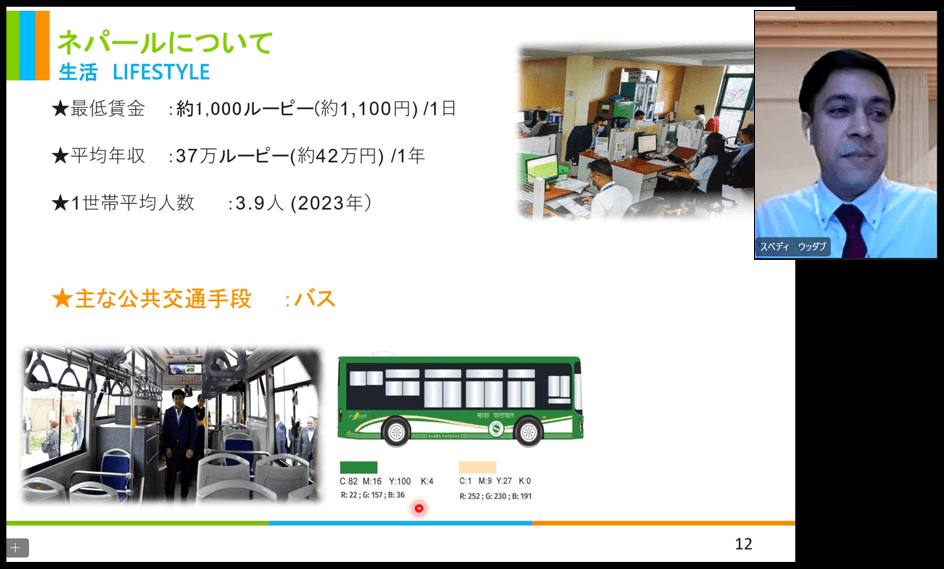
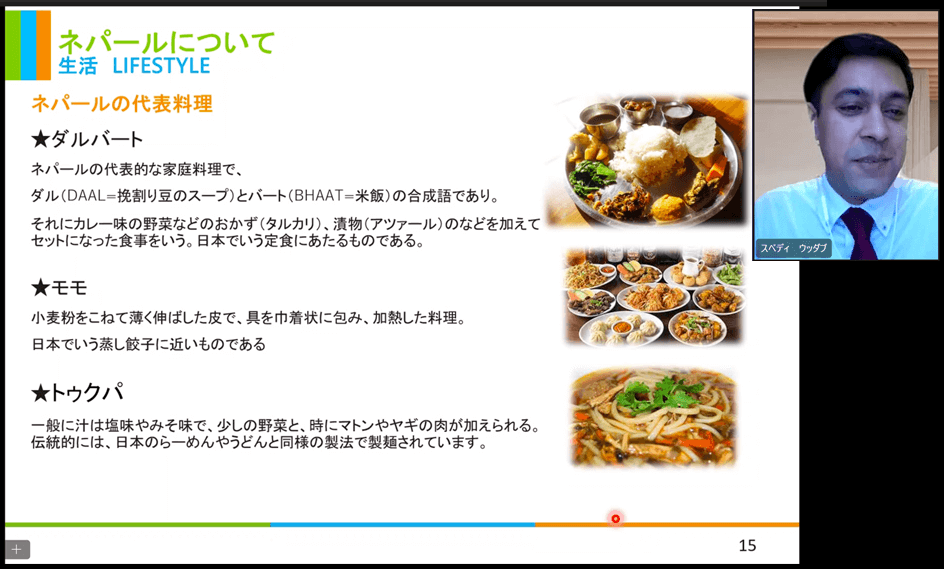
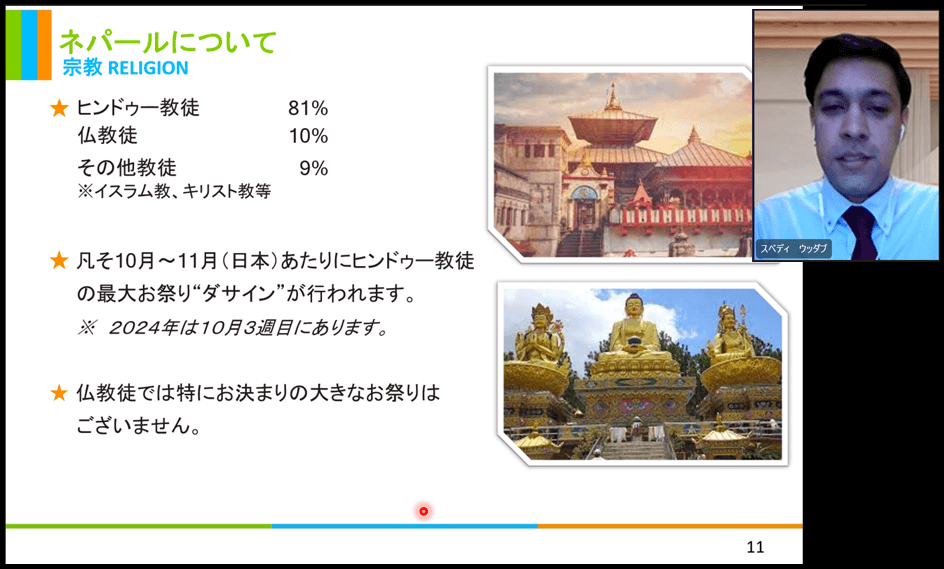
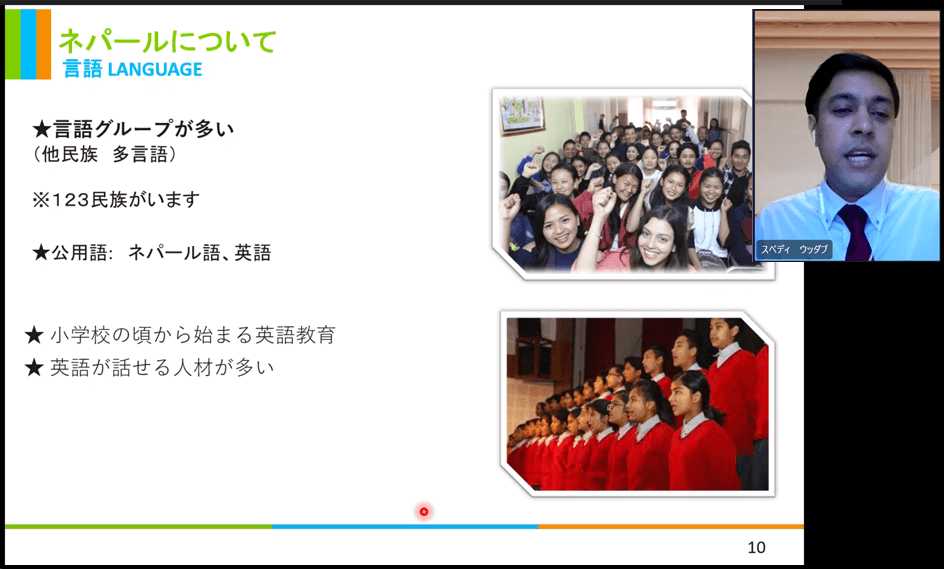
- 0120-220353Weekdays: 9:00-17:30 Saturdays, Sundays, and holidays: Closed
- Q&A
- Contact Us






